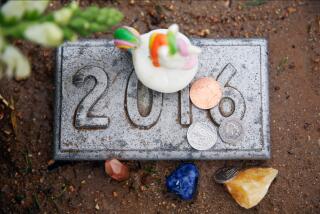Which is worse, isolation or loneliness?
- Share via
Henry David Thoreau relished isolation but didn’t feel lonely. Marilyn Monroe was a social butterfly but died lonely.
Their separate fates -- Thoreau dead of tuberculosis at 44, Monroe of suicide at 36 -- can’t tell us much scientifically, but a study of an elderly population in England might shed more light.
Having few social contacts may be more deadly than feeling alone, according to the study, published in the Proceedings of the National Academies of Science.
Even when physical and mental health are factored out, isolation still led to a higher mortality rate than feeling lonely did among the 6,500 elderly British people whose health outcomes over a six-year period were studied.
A similar look at retired Americans in 2012 reinforced multiple studies that link loneliness to potentially fatal illnesses, including heart trouble and high blood pressure.
British and U.S. populations have become more solitary. People living alone compose more than a quarter of U.S households, and the proportion of Americans who said they had no one to talk to about important matters grew from 10% in 1985 to 25% in 2004, according to authors of the British study. A 2010 European survey revealed that more than a quarter of Europeans age 50 and older reported that they met friends, colleagues or family less than once a month.
Separating the effects of loneliness from those of isolation, however, has not been easy for those who study rates of illness and death. While isolation can be measured directly — by how many friends you have or how often you have contact with family — loneliness is more subjective, measured through survey questions about whether social needs and expectations are being met.
The National Institute on Aging, part of the National Institutes of Health, funded both the British study and last year’s report on U.S. retirees.
Loneliness and isolation “should get lots of attention because they may be as important, as joint factors, as smoking,” said Richard Suzman, director of the National Institute on Aging’s division of behavioral and social research.
Studies that involve interventions would help separate the different effects of loneliness and isolation, he added.
“Isolation wins out this time, but I’d want an experiment to verify that,” Suzman said.







